Advisory Board and Editors Cell Biology
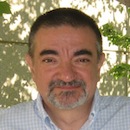
Amato J. Giaccia
Professor of Radiation Oncology, Associate Chair for Research & Director of the Division of Radiation & Cancer Biology in the Department of Radiation Oncology. Head of the Radiation Biology Program in Stanford's Cancer Center, & Director of the Cancer Biology Interdisciplinary Graduate Program. Co-authored the 6th/7th editions of the textbook, "Radiation Biology for the Radiologist". Currently the Jack, Lulu and Sam Willson Professor in Cancer Biology at Stanford University School of Medicine

Joseph J Gillespie
Dr. Gillespie is an evolutionary biologist with broad interests in organismal and molecular evolution. The major focus of his current research is deciphering the mechanisms by which obligate intracellular species of Rickettsiales (Alphaproteobacteria) invade, survive and replicate within eukaryotic cells.
In research funded by the National Institutes of Health, Dr. Gillespie utilizes phylogenetics, comparative genomics and bioinformatics to guide experimental research on various pathogenic species of Rickettsia and their associated arthropod vectors. His early research resulted in the reclassification of Rickettsia species and the identification of many lineage-specific pathogenicity factors. Through years of intense scrutinization of dozens of diverse rickettsial genomes, Dr. Gillespie and colleagues have described a large, dynamic mobilome for Rickettsia species, resulting in the identification of integrative conjugative elements as the vehicles for seeding Rickettsia genomes with many of the factors underlying obligate intracellular biology and pathogenesis. Via an iterative process of genome sequencing, phylogenomics, bioinformatics, and classical molecular biology and microbiology, Dr. Gillespie continues to lead and assist research projects on the characterization of rickettsial gene and protein function, as well as the description of cell envelope glycoconjugates.

Gwyn W Gould
Gwyn is Professor in the Strathclyde Institute of Pharmacy and Biomedical Sciences at the University of Strathclyde where he has recently moved his lab. He did his undergraduate and postgraduate work at the University of Southampton, studying lipid/protein interactions under the supervision of Tony Lee for his PhD. This was followed by postdoctoral work at Dartmouth Medical School where his interest in membrane trafficking began. After a 30-year career at the University of Glasgow, he has moved to the Strathclyde Institute of Pharmacy and Biomedical Sciences where his research continues to focus upon the control of glucose transport by insulin in adipocytes, muscle and cardiac tissue.
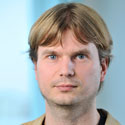
Juro Gregan
- associate professor, Dept. of Genetics, Comenius University in Bratislava, Slovakia
- group leader, MFPL, Dept. of Chromosome Biology, University of Vienna, Vienna, Austria
- postdoctoral researcher, IMP (Research Institute of Molecular Pathology), Vienna, Austria (K. Nasmyth lab)
- postdoctoral researcher, Dept. of Zoology, Univ. of Oxford, Oxford, UK (S. Kearsey lab)
- PhD study, Dept.of Microbiology and Genetics, Univ. of Vienna, Vienna, Austria (R. Schweyen lab)
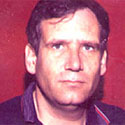
Yosef Gruenbaum
Professor of Genetics and is currently the Chair of the Institute of Life Sciences at the Hebrew University. Member of Faculty 1000 and has served on the editorial board of several journals.
Research Fields:
Lamins and their associated proteins in health and disease The roles of the nuclear lamina in development and aging The role of the nuclear envelope in apoptosis Molecular and genetic analysis of matefin/SUN-1 The sensing and responding to high CO2 levels.
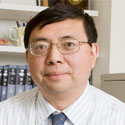
Jun-Lin Guan
Professor of Internal Medicine and of Cell and Developmental Biology at University of Michigan Medical School. Fellow of the American Association for the Advancement of Science.

Fanglin Guan
Prof. Fanglin Guan is Dean at Xi'an Jiaotong University. He is engaged in the integrated biological research of complex diseases, including tumor microenvironment and novel immunotherapeutic modalities, and research on the mechanisms and medical applications related to tumor cell vaccines, especially for the exploration of the mechanism of determining the biomarkers of complex diseases.

Aarti Gupta
Dr. Aarti Gupta is a Research Scientist at the Institute of Genomics for Crop Abiotic Stress Tolerance (IGCAST), Texas Tech University.
She obtained her Ph.D in Plant Genetics and has expertise in the area of plant stress biology and plant molecular biology
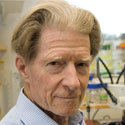
John Gurdon
Emeritus Prof. of the Department of Zoology, University of Cambridge. Made a Fellow of the Royal Society in 1971, and knighted in 1995. He served as Master of Magdalene College, Cambridge, from 1995 to 2002. Awards include the 2012 Nobel Prize, the 1989 Wolf Prize in Medicine, the 2009 Albert Lasker Basic Medical Research award, the 1968 Scientific Medal of the Zoological Society, the 1987 Emperor Hirohito International Prize for Biology, & the 2001 Conklin Medal.

Maximiliano Gutierrez
Max studied biochemistry and molecular biology in Argentina. In 2005, he was awarded a PhD in cell biology where he focused on the interactions between intracellular pathogens and the autophagic pathway. After that, he was in Gareth Griffiths Laboratory at EMBL, Heidelberg, Germany as a postdoctoral fellow of the von Humboldt foundation and EMBO focusing on the cell biology of macrophages and mycobacteria. In 2009, he became the head of the Junior Research Group “Phagosome Biology” at the Helmholtz Centre for Infection Research in Braunschweig, Germany. In 2012, he was recruited as a Programme Leader Track at the National Institute for Medical Research in London. Since 2015, he is a group leader at the Francis Crick Institute in London where he is developing imaging technologies and cellular models of infection to investigate the host-pathogen interactions in tuberculosis.

Anita C Hall
PhD in Neurobiology (UCL, UK), two post-docs in cellular neuroscience and stem cell biology (KCL, UK and Karolinska Institute, Sweden), appointed as a Neuroscience Lecturer at Imperial College London, UK and I have recently become one of its first Senior Teaching Fellows. For full information see my LinkedIn profile at https://www.linkedin.com/in/anitahall1 .

Ying Ying Han
Associate Researcher in Center of System Biomedical Sciences, University of Shanghai for Science and Technology

